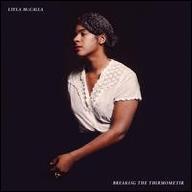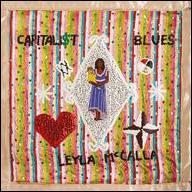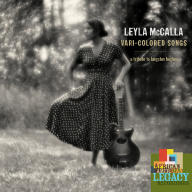Leyla McCalla was born in New York City to Haitian immigrant parents, raised in a New Jersey suburb, and then spent two years in Ghana as a teenager, returning to the U.S. to attend Smith College before moving on to study cello performance and chamber music at New York University. Not afraid to gamble, she relocated to New Orleans after college, intent on busking with her cello in the French Quarter. She fell in love with Louisiana Creole culture, particularly fiddlers like Canray Fontenot and Bébé Carrière, whose styles she began to explore on the cello. While playing on the street, McCalla met Tim Duffy, director of the Music Maker Relief Foundation, who in turn introduced her to the Carolina Chocolate Drops string band.
After touring with the Chocolate Drops and appearing on the group's Leaving Eden album, McCalla began to concentrate on a solo career. Her debut album, Vari-Colored Songs, a tribute to Langston Hughes, appeared in Europe in 2013 and was named album of the year by both the London Times and Songlines magazine. It was issued internationally by the Music Maker Relief Foundation in early 2014. McCalla toured the U.S, Europe, and Israel in support. The title of her sophomore effort, A Day for the Hunter, A Day for the Prey, was ultimately derived from a Haitian proverb. It featured songs in English, French, and Haitian Creole, with appearances by Marc Ribot, Rhiannon Giddens, Louis Michot of the Lost Bayou Ramblers, and New Orleans singer/songwriter Sarah Quintana. The set was issued by Jazz Village in May 2016.
2019's Capitalist Blues saw McCalla enlist Jimmy Horn of King James the Special Men to produce a wide-ranging set of bustling songs that embraced Haitian, Brazilian, Cajun, zydeco, and calypso styles. That same year, she teamed up with Rhiannon Giddens, Allison Russell, and Amythyst Kiah under the banner Our Native Daughters and issued the acclaimed Songs of Our Native Daughters on Smithsonian Folkways. 2022's innovative Breaking the Thermometer combined original compositions with traditional Haitian tunes and historical broadcasts from the country's first
Kreyòl-speaking radio station. ~ Steve Leggett & James Christopher Monger, Rovi








